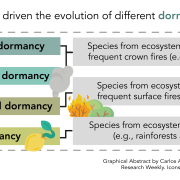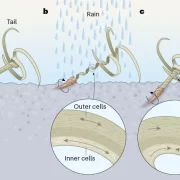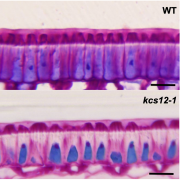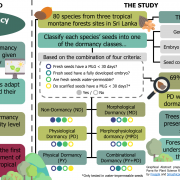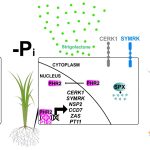Oxidant system and ABA drive germination in seeds of palm species with differences in desiccation tolerance ($) (Seed Sci Res)
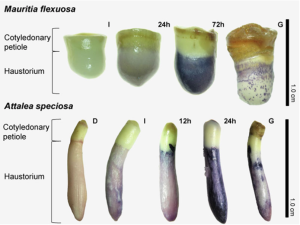 Palms are a taxonomically and ecologically diverse group. This wide variety is also reflected in their seeds, with their species showing all combinations of dormancy and desiccation tolerance behaviors. Yet, comparative studies of their germination physiology are relatively scarce. In this paper, Santos and colleagues evaluate i) the temperature requirements and ii) ABA, ROS and antioxidant system dynamic of two species with dormant seeds but contrasting desiccation tolerance: Mauritia flexuosa (desiccation-sensitive) and Attalea speciosa (tolerant). The species shared several features, including similar antioxidant system enzyme activity patterns and a conspicuous production of O2– in the haustorium after dormancy break. Still, M. flexuosa germinated at a narrower range of temperatures than A. speciosa; and even under optimal conditions, its germination was significantly slower. Moreover, H2O2 and ABA levels were higher in M. flexuosa and did exhibit a considerable decrease during germination. Antioxidant enzyme activity in this species was also ten times higher. These differences were particularly notable for ascorbate peroxidase activity, which was practically inexistent in A. speciosa. As a result, this research provides exciting insights into the physiological differences between species of this highly diverse family. (Summary by Carlos A. Ordóñez-Parra @caordonezparra) Seed Sci. Res. 10.1017/S0960258522000095
Palms are a taxonomically and ecologically diverse group. This wide variety is also reflected in their seeds, with their species showing all combinations of dormancy and desiccation tolerance behaviors. Yet, comparative studies of their germination physiology are relatively scarce. In this paper, Santos and colleagues evaluate i) the temperature requirements and ii) ABA, ROS and antioxidant system dynamic of two species with dormant seeds but contrasting desiccation tolerance: Mauritia flexuosa (desiccation-sensitive) and Attalea speciosa (tolerant). The species shared several features, including similar antioxidant system enzyme activity patterns and a conspicuous production of O2– in the haustorium after dormancy break. Still, M. flexuosa germinated at a narrower range of temperatures than A. speciosa; and even under optimal conditions, its germination was significantly slower. Moreover, H2O2 and ABA levels were higher in M. flexuosa and did exhibit a considerable decrease during germination. Antioxidant enzyme activity in this species was also ten times higher. These differences were particularly notable for ascorbate peroxidase activity, which was practically inexistent in A. speciosa. As a result, this research provides exciting insights into the physiological differences between species of this highly diverse family. (Summary by Carlos A. Ordóñez-Parra @caordonezparra) Seed Sci. Res. 10.1017/S0960258522000095


